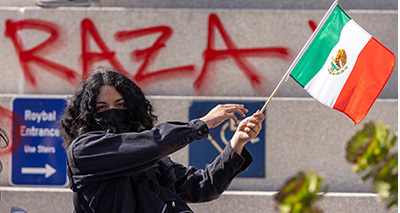The Unz Review • An Alternative Media Selection$
A Collection of Interesting, Important, and Controversial Perspectives Largely Excluded from the American Mainstream Media
Authors Filter? ❌
Andreas R. Wesserle Arthur R. Butz Arthur S. Ward Bezalel Chaim Carlo Mattogno Charles E. Weber Charles Lutton Dan Desjardins Daniel W. Michaels David Irving Ditlieb Felderer Donald Neff Doug Collins Enrique Aynat Fred A. Leuchter, Jr. Friedrich Paul Berg Greg Raven H. Keith Thompson Harry Elmer Barnes IHR Staff Ian B. Warren Ivor Benson J. Marcellus Jack Wikoff James J. Martin John Bennett John Cobden John M. Ries John Weir Joseph Bishop Joseph Sobran Jürgen Graf Keith Stimely L.A. Rollins Lewis Brandon Mark Weber Martin A. Larson Paul Grubach Percy L. Greaves, Jr. R. Clarence Lang Revilo P. Oliver Robert A. Hall, Jr. Robert Clive Robert Faurisson Samuel Crowell Samuel Edward Konkin III Theodore J. O'Keefe Victor Marchetti Wilhelm Stäglich William Grimstad A. Dibert Abdullah Mohammad Sindi Aleksandr Solzhenitsyn Aleksandras Shtromas Alexander Cockburn Alexander E. Ronnett, M.D. Alexander V. Berkis Alfred M. Lilienthal Allan C. Brownfeld Andrew Allen Andrew Gray Andrew Montgomery Anthony Kubek Anthony O. Oluwatoyin Antony Charles Ariel Sharon Arthur Ponsonby Austin J. App Basil Dmytryshyn Bernhard Schaub Bradley R. Smith Brian A. Renk Brian Chalmers Brian Renk Carl O. Nordling Carlos W. Porter Charles A. Lindbergh Charles D. Provan Charles Stanwood Claus Nordbruch Costas Zaverdinos Darryl Hattenhauer David Baxter David Cole David L. Hoggan Dean Clarence Manion Dennis Nayland Smith Desmond Hansen Don Heddesheimer Donald E. Tarter Dr. William B. Lindsey Eduard Bloch Edward Johnson Elisabeth Kuesters Eric Breindel Ernst Nolte Ernst Zündel Faust Bradescu, Ph.D Florentine Rost van Tonningen Francis Parker Yockey Frank H. Hankins Frederick Kerr Fredrick Töben Geoff Muirden Georg Franz-Willing Germar Rudolf Glayde Whitney Goldwin Smith Gregory P. Pavlik Hans von der Heide Heinz Nawratil Hellmut Diwald Henri Roques Henry M. Adams Herman Otten Hideo Miki Horst Kehl Howard F. Stein Ibrahim Alloush Ingrid Weckert Issah Nakhleh James Alexander James B. Whisker James Ennes James Hawkins Janet Reilly Jeff Riggenbach Jeffrey Rogers Hummel Jerome A. Brentar Joachim Hoffmann John Mueller John P. Strang John Sack John Sheehan John Toland Joseph Halow K. C. Gleason Karl Brecht Karl Otto Braun Kevin Beary Kevin MacDonald L. A. Rollins Leon B. Poullada Leon Degrelle Leonhard Friedrich Lesya Jones Lothrop Stoddard Louis FitzGibbon Louis Vezelis M. Broszat M. Seleshko MacKenzie Paine Mario Consoli Martin Brech Martin Merson Mary Ball Martinez Michael A. Hoffman II Michael Berenbaum Michiko Hasegawa Mohamed Hasanein Heikal Murray Rothbard Nelson Rosit Noam Chomsky Oswald Spengler Otto Ernst Remer Otto Kanold Paul N. McCloskey, Jr. Paul Rassinier Peter H. Oppenheimer Peter H. Peel Peter Harrison Peter Wainwright Philip Beck Phillip Tourney Rachelle Marshall Ranjan Borra Reinhard K. Buchner Richard A. Widmann Richard H. Curtiss Richard Harwood Richard Landwehr Richard Lawson Richard Verrall Robert Atelier Robert C. Black Robert H. Countess Robert H. Williams Robert J. Chapman Robert John Robert Martello Robert Morgan Robert Row Roger A. Stolley Roger Garaudy Ronald Klett Rudolf Hess Russ Granata S. Verbeke Sam Dickson Sami Hadawi Samuel Taylor Scott L. Smith Serban C. Andronescu Serge Thion Srinidhi Anantharamiah Stephanie Schoeman T.D. Hendry Theodore J. O\'Keefe Thies Christophersen Thomas Fleming Thomas Henry Irwin Thomas Jackson Timothy W. Ryback Tom Sunic Trevor J. Constable Tyler Kent Udo Walendy Valentyn Moroz W.K.F. Schuldes W.K.v.U.-Ziechmann W.R. Silberstein Walter Lüftl Walter N. Sanning Wayland D. Smith Werner Wilhelm Laska Will Rogers William B. Hesseltine William B. Lindsey William Henry Chamberlin Wolf Rüdiger Hess Yûnus Bahrî Zoltán Bruckner
Nothing found
Topics Filter? ❌
9/11 American History American Media Auschwitz Bolshevik Revolution Censorship Civil War Columbus David Irving Franklin D. Roosevelt History Holocaust Ideology Israel Italy Jews Mafia Mussolini Native Americans Nazi Germany Pearl Harbor Political Correctness Race Soviet Union USS Liberty World War I World War II
Nothing found
Periods Filter? ❌
Find Searching...
Title ❌ Author ❌ Period ❌
◄►◄❌►▲ ▼▲▼ • BNext New CommentNext New ReplyRead More
ReplyAgree/Disagree/Etc. More... This Commenter This Thread Hide Thread Display All Comments
Nicholas, Alexandra, and Their Children
PastClassics
Analyzing the History of a Controversial Movement
The Surprising Elements of Talmudic Judaism
Teach your children well.
The Shaping Event of Our Modern World
The JFK Assassination and the 9/11 Attacks?
Our Reigning Political Puppets, Dancing to Invisible Strings
 RSS
RSS





